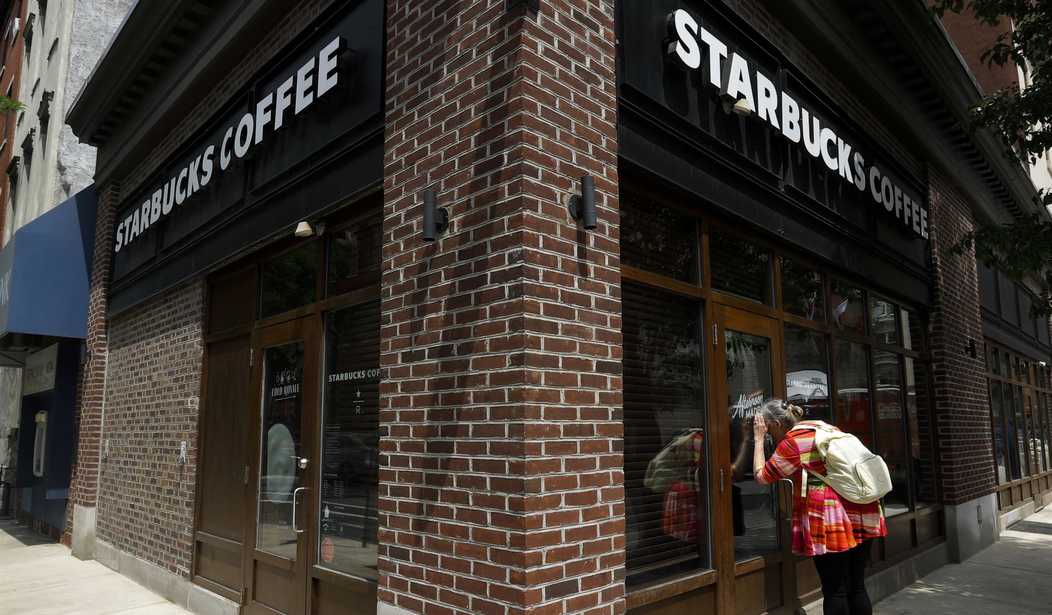Missouri Attorney General Andrew Bailey filed a lawsuit against Starbucks Corporation on Tuesday accusing it of unlawful race and sex-based discrimination related to its diversity, equity, and inclusion (DEI) programs.
The lawsuit claims the company is violating federal and state discrimination laws by prioritizing diversity over merit. The legal action comes after President Donald Trump issued a flurry of executive orders targeting DEI in the public and private sectors.
Missouri contends that Starbucks’ policies promote systemic discrimination against white and male employees because it is making employment decisions based on race and sex instead of merit. It claims these practices have an adverse impact on the company’s customers by increasing costs and reducing the quality of service provided.
The attorney general refers to the Supreme Court’s 2023 ruling in Students for Fair Admissions v. Harvard, stating that “Eliminating racial discrimination means eliminating all of it.” The state further argues that Starbucks’ DEI practices violate Title VII and the state’s Human Rights Act, which prohibit discrimination based on immutable characteristics.
From the complaint:
Starbucks ties compensation to racial and sex-based quotas, discriminates on the basis of race and sex in training and advancement opportunities, and discriminates on the basis of race and sex with respect to its board membership. All of this is unlawful.
The lawsuit further contends that “Making hiring decisions on non-merit considerations will skew the hiring pool towards people who are less qualified to perform their work, increasing costs for Missouri’s consumers.”
The plaintiffs did not offer any evidence or data showing that Starbucks’ employment practices have increased costs or resulted in a lower quality of service to consumers in this complaint.
Recommended
Starbucks “has decided to require outright race and sex-based discrimination in hiring via quotas, segregate employees on unlawful bases, and single out preferred groups for additional training and employment benefits,” according to the complaint.
The company is being accused of allocating executive bonuses to those who meet racial and gender diversity quotas. “Starbucks tied ‘ten percent of the overall bonus payout calculation . . . to creating an inclusive environment where everyone belongs,’” the lawsuit alleges.
In September 2020, [Starbucks’] Compensation Committee approved the incorporation of additional targets into both [Starbucks’] short-term and long-term fiscal 2021 incentive plans (Annual Incentive Bonus Plan and LSP [Leadership Stock Plan]) for [its] U.S.-based senior leadership team members at the senior vice president level and above.
The company also instituted a “representation target” that allegedly “focuses on improvement in Black, Indigenous and LatinX representation at the manager level and above, with a 3-year target of improving Black, Indigenous and LatinX representation by more than 5% by 2023.”
The attorney general takes issue with the exclusive training, mentorship, and advancement opportunities allegedly provided to certain racial and gender groups while excluding others. The complaint refers to programs such as the Black Partner Network and Latinx Partner Network, which offer networking, development, and job benefits to racial minorities.
“Minority employees are given a mentor in the senior leadership team at the company, one-on-one training, and mentorship sessions. But employees of other races were not,” the attorney general alleges.
The lawsuit further notes that Starbucks’ workforce was “8.1% black, 31.7% Hispanic, 5.6% Asian, 47.8% white, 0.6% American Indian or Alaska Native, and 0.5% Native Hawaiian or Other Pacific Islander” as of September 28, 2024. The company’s workforce “was 70.9% women and 28.4% men.”
The lawsuit adds: “In other words, since 2020, Starbuck’s workface has become more female and less white.”
Bailey, in a press release, argued that he has “a responsibility to protect Missourians from a company that actively engages in systemic race and sex discrimination” and that “Racism has no place in Missouri.”
Starbucks issued a statement to KTVI saying, “We disagree with the attorney general and these allegations are inaccurate.”
The company insisted that it is “deeply committed to creating opportunity for every single one of our partners (employees)” and that “Our programs and benefits are open to everyone and lawful.”

























Join the conversation as a VIP Member